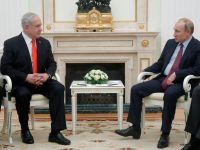As leaders in Asia face trial, exile and allegations this week for corrupt practices, an anti-corruption conference Wednesday urged the region's governments to battle abuses at the "highest level."
"Delegates reaffirm that political commitment at the highest level is necessary," said a statement released at the end of the event organized by the Asian Development Bank (ADB) and the Organization of Economic Cooperation and Development (OECD).
Over 200 government and specialised agency representatives from 35 nations took part in the three day conference, which coincided with the Philippines president's corruption trial in the Manila senate, former Pakistani premier Nawaz Sharif's exile after his corruption conviction, and allegations that Japan's embattled Premier Mori harbours connections with ex-gangsters.
The conference called for greater emphasis on good governance through legal, structural and administrative reforms and on strengthening the rule of law by ensuring the independence of investigative and judiciary bodies.
The forum, the second of its kind, stressed joint efforts in the region.
"Delegates recognized that regional cooperation is a powerful tool to support national efforts to curb corruption," the statement said.
"They called upon governments from inside and outside the region and international organizations to provide support and assistance in the drawing up and implementation of anti-corruption strategies."
South Korea, hosting the conference, proposed "a regional anti-corruption compact," it said.
Rainer Geiger, deputy director of OECD in charge of anti-corruption affairs, said delegates welcomed South Korea's initiative.
The OECD official said the proposed non-binding regional alliance would be distinct from the existing, binding OECD-initiated global anti-corruption convention.
Geiger said: "We do not seek just conferences. We want to see actual actions and impacts on national policies. We are very pleased."
He said corruption, not only in Asia but all over the world, occurs largely due to the lack of appropriate laws and transparency in governance.
Delegates had outlined the problems they faced stamping out corruption.
Wang Hongxiang, senior official at China's Supreme People's Procuratorate, said more than 500,000 cases of bribery and corruption, mostly involving senior officials, have been investigated in China over the past decade.
Yet "in some places investigations have been unwelcome, interfered with, cancelled or judged lightly."
"Although the number of cases to be investigated have increased year on year, the number of such criminals locked up in prisons has not increased."
Khalid Maqbool, head of Pakistan's National Accountability Bureau, said institutional failure was to blame for corruption in his country and warned against the brewing powerful group of businessmen-politicians.
The Conference on Combating Corruption in the Asia-Pacific Region has served a venue for public officials, civic groups and businesses to exchange experiences in fighting corruption in the region since 1999.
Next year's conference will be held in Tokyo -- SEOUL (AFP)
© 2000 Al Bawaba (www.albawaba.com)







